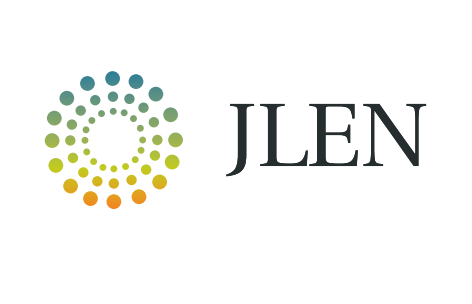JLEN NAV declines on tax hike and power prices – JLEN Environmental has published its results covering the year ended 31 March 2021. The NAV has fallen from 97.5p to 92.2p. This reflects the planned increase in UK corporation tax, from 19% to 25% from April 2023, and a downward revision to electricity and gas price forecasts. The NAV is calculated based on JLEN’s forecast cash flows. The corporation tax increase has been assumed to apply over the whole length of the life of its projects.
The dividend has been increased from 6.66p to 6.76p. This was in-line with earlier forecasts. This dividend was covered 1.07x. The target for the current financial year, ended 31 March 2022 is 6.80p.
JLEN’s profit after tax for the year was £8.1m (2020: loss after tax £10.7m) resulting in earnings per share of 1.5p (2020: loss per share of 2.1p). Removing unrealised movements on investments at fair value, the adjusted profit before tax is £37.0m (2020: £32.8m), equivalent to 6.8p per share (2020: 6.5p).
Cash received from the portfolio assets by way of distributions, which includes interest, loan repayments and dividends, was £48.2m during the year. After operating and finance costs, cash flow from operations of the group was £39.5m, covering the cash dividends paid during the year of 6.735 pence per share by 1.07x.
Operationally, the portfolio did well
As we have documented, over the past year the portfolio has continued to grow and JLEN’s sources of revenue continue to diversify. Shareholders have also approved a broader definition of which assets are suitable for the portfolio. The £56.9m raised last month and the new ESG-linked £170m revolving credit facility support its future plans. The NAV hit is down to matters outside JLEN’s control. The portfolio delivered returns 0.4% ahead of budget thanks to strong performance from the solar (1.8% ahead of budget) and anaerobic digestion assets (2.1% ahead of budget). Wind generation was 1.4% below budget on lower wind speeds.
In its solar portfolio, JLEN says that its Branden assets had notably strong performances over the year, both sites outperforming their budgets by around 8%; while the insurance payments from events in 2018/19 were also received during the period. Solar production could have been even higher but network operator constraints were applied to JLEN’s Shoals Hook asset. JLEN says that it trialled a technical upgrade at its Amber Fryingdown site which worked well and will now be rolled out to the remainder of the Amber sites.
In the anaerobic digestion portfolio, strong performances came from the Icknield, Peacehill and Grange Farm plants. At its Vulcan AD plant, JLEN completed its second major upgrade during the period ahead of schedule, enabling it to flow gas at a rate of 1200m3 hour compared to an initial investment case of 450m3 hour. While a minority of plants experienced some negative variance on feedstock costs, generally the year was a strong one, with value enhancements such as the disruptors (a piece of equipment that breaks feedstock into smaller pieces, increasing gas production) adding value and contributing to increased resilience of the portfolio.
As previously flagged, the Bio Collectors food waste plant was impacted by lower volumes of waste to process as a result of COVID. A second asset – Codford – was acquired this year. It is less exposed to the hospitality and catering industry than Bio Collectors. As things return to normal, these assets should become more profitable. Regulatory changes mandating the collection of source-segregated food waste come into force in 2023.
The hydro assets were hit by lower than expected rainfall – the driest spring in recorded history for the Yorkshire area.
In the short-term last year, power prices were hit by COVID-related lower demand for power (this also affected revenues from JLEN’s battery storage business as the National Grid did not procure the anticipated volume of balancing services). Power prices have since recovered sharply. JLEN says 87% of the renewable energy portfolio’s electricity price exposure is fixed for the current summer 2021 season and 78% for the upcoming winter 2021/22 season. For gas, the position is 73% and 75% fixed for summer 2021 and winter 2021/22 seasons, respectively.
Changes in assumptions
The weighted average of the discount rates used to value the portfolio fell from 7.4% to 7.3%. Range 5.5% to 13.0% versus 6.0% to 9.2% for the prior year.
Higher UK inflation in the medium term is assumed. Inflation 3% for 2021 decreasing to 2.25% from 2031. This was 2.17% for 2020, gradually increasing to 2.75% from 2025.
